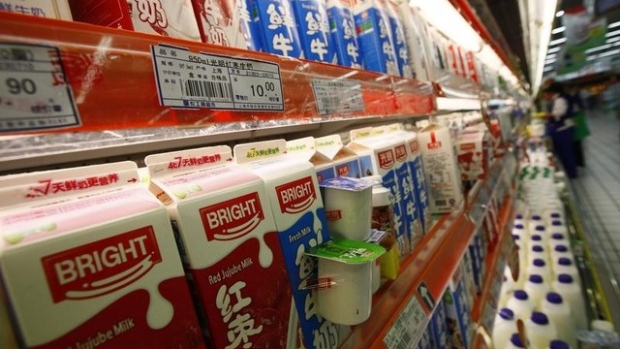Dec 20, 2016
Goldman Sachs hired by China's Bright Food Group to sell cereal maker Weetabix, sources say
, Reuters

NEW YORK/LONDON (Reuters) -- China's Bright Food Group has hired Goldman Sachs (GS.N) to sell the breakfast cereal maker Weetabix in a deal that could value the famous British brand at roughly one billion pounds, according to three sources familiar with the matter.
The sale process is expected to start in January, the sources said, less than five years after the Chinese company agreed to take control of the 84-year-old business, which has seen the majority of its union workers voting on Monday to strike over new working conditions.
The sale comes after Bright Food has struggled to crack the Chinese market, where many consumers tend to eat hot breakfasts rather than cold cereal. The overwhelming majority of Weetabix sales still come from its slower-growth domestic market.
In Britain and the United States cereals have for several years faced mounting competition from smoothies, yogurts and juices, while the increasing popularity of low-carbohydrate diets has also pressured sales.
State-owned Bright Food agreed to buy a 60 per cent stake in Weetabix in 2012 from private equity firm Lion Capital in a deal that valued it at 1.2 billion pounds (US$1.48 billion). Baring Private Equity Asia subsequently bought Lion's remaining stake in 2015.
The business has not grown significantly since then, the sources said, estimating a similar price again based on current earnings before interest, tax, depreciation and amortization (EBITDA) of 130 million pounds.
A Weetabix spokesman said the company does not comment on rumor or speculation, saying it was "business as usual".
Goldman also declined to comment, while Bright Food and Baring were not immediately available outside regular business hours in Asia.
Bright Food, a Shanghai-based conglomerate with interests in meat, dairy and other foods, is not the only company that has tried to import Western eating habits to China. Chinese investment group Hony Capital bought British restaurant chain PizzaExpress in 2014, hoping to recreate the success of Pizza Hut, owned by Yum Brands (YUM.N).
China, with its population of more than a billion people, has long attracted multinational food firms such as Nestle and Mondelez International (MDLZ.O), which have often tweaked their international brands for local tastes, with products like green tea Oreos and a richer Nescafe.
Weetabix is the No. 7 cereal brand worldwide, with about one per cent of a US$27.5 billion market at retail, according to Euromonitor International. In Britain, it is the No. 2 brand behind world leader Kellogg's (K.N).



